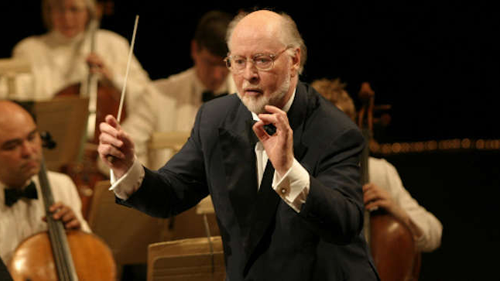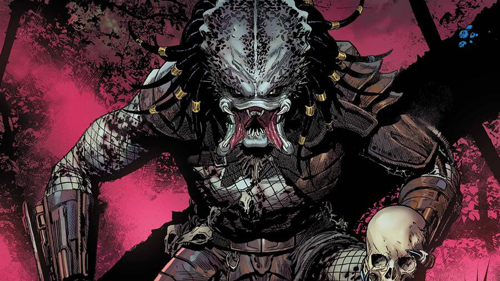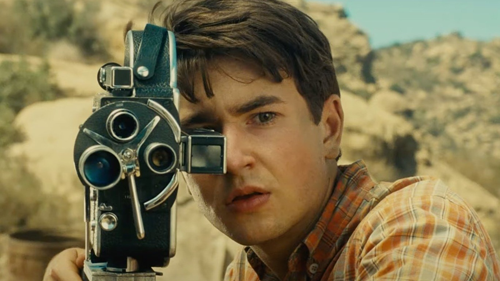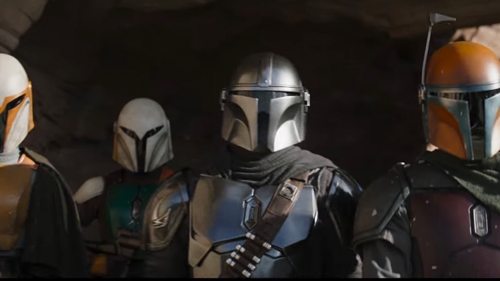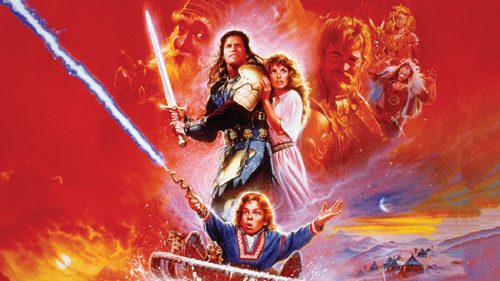
Willow returns with Warwick Davis (Star Wars) reprising the titular role this holiday season on Disney+.
In anticipation, Hollywood composer James Horner's original Willow soundtrack gets the Star Tracks treatment. Like John Williams (Jaws) and Jerry Goldsmith (Alien), Horner was integral to my formative soundtrack education as I underwent rehabilitation for a life-changing neurological injury.
Nick Smith, our resident US-based media maverick, goes on an epic fantasy adventure courtesy of the fine folks at Intrada.
Guest post by Nick Smith
With a Willow trailer previewed and a panel discussion at this year’s Star Wars Celebration, it’s the perfect time to visit the original movie and its evocative soundtrack by the late Hollywood composer, James Horner.
A new Intrada release shines a deserved spotlight on the score, with over half an hour of previously unreleased cues, all mastered from original digital stereo mixes. All told, we get over 100 minutes of music, making the original album seem brownie-sized in comparison.
Willow was released in 1988 to great fanfare. However, it lacked the same universal appeal as Executive Producer George Lucas’ other brainchildren, Star Wars and Indiana Jones.
Taking some of its inspiration from The Lord of the Rings and Arthurian myth, this one was for lovers of epic fantasy, the Dungeons & Dragons (D&D) crowd, families and special effects junkies, hiring 650 extras and filming in numerous international locations.
In the thick of it, was the diminutive Willow. Per film writer Marcus Hearn, Lucas has said, ‘a lot of my movies are about a little guy against the system, and this was just a more literal interpretation of that idea.’
Director Ron Howard, on a high after Splash (1984) and Cocoon (1985), had just the correct sensibilities for an adventure film with wide appeal. Willow was a hit, with a worldwide box office of almost $138 million. But it wasn’t the megahit MGM/United Artists hoped for.
Three decades later, Willow is still fun to watch, mainly thanks to the confident performances by the 18-year-old Warwick Davis (Willow Ufgood), Val Kilmer (Madmartigan), Joanne Whalley (Sorsha) and Jean ‘Upstairs Downstairs’ Marsh, who plays the deliciously wicked sorceress Bavmorda.
Willow is even more fun to listen to, with a score as lavish as the accompanying images. Dozens of instruments and several distinct melodies collide as the film builds to its climax.
What does an exotic fantasy world sound like? Acoustic instruments? Heavy drumbeats? Magical synth twinkles? Horner melded all of the above on a gig that in many ways was a composer’s dream. He had a sizeable budget and few constraints to stick by. He wasn’t depicting ‘30s New Orleans or ‘80s LA. He was able to help build a brand new world with his score, with a heavy dose of light-heartedness, strong character themes and a fast pace.
This wasn’t Horner’s first unicorn rodeo. He’d created the distinctive music for Krull (1983) with far fewer resources at his disposal. With Willow, Horner was able to go for broke. ‘I am… a doctor of music,’ Horner said, according to Jean-Baptiste Martin who runs the James Horner Film Music
website. ‘I listened to, studied and analysed a lot of music. I also enjoy metaphors, the art of quoting and of cycles. The harmonic draft of the Willow score, and most particularly its spiritual side, came from such a cycle, from such mythology and music history that I was taught, and that I myself convey with my own emotions and compositions.’
Horner pulls from a Slavic liturgy, Mozart’s Requiem, a Bulgarian peasant song, Bartok, Holst, Prokoviev, Schuman and Edvard Grieg. The musicologist’s gleeful research pays off in tracks like Airk’s Army and Elora Danan, which introduce many of the soundtrack’s major themes. There’s a potent sense of society and tradition, especially in The Nelwyns and The Nelwyns No. 2 – imagine The Dark Crystal’s Podlings dancing to an African beat, diamonds on the soles of their tiny shoes, and you’ll get a good idea of how that sequence sounds.
To further the sense that we were trotting through a weird new world, Horner turned to quaint instruments and objects like an Irish bodhran drum, a Chinese opera gong, an ocarina, conch shells, bagpipes, pan pipes (which are particularly distinct in a track called The Island) and even a plastic cup.
There are also hints of Horner’s previous scores – strings soar in Escape From The Tavern, sounding a lot like Stealing the Enterprise from Star Trek III: The Search For Spock (also available from Intrada).
Other cues, particularly Tir Asleen, evoke trademark Lucasfilm moments; you can imagine Lucas saying to Horner, ‘I want this to be John Williamsy. Can you make this Williamsy?’
Despite some intentionally discordant bits, for all its elements this ambitious score is remarkably cohesive and it sounds gorgeous in its new 2-CD form. After listening, we feel like we have been on an emotionally satisfying journey through a believable world, where there are consequences to each of the characters’ actions, highlighted in the music.
When the sonic adventure is over, I miss its charm and imagination, the way it depicts the triumph of light over darkness. Fortunately, it’s almost time to visit Willow’s land again in Lucasfilm’s forthcoming series on Disney+, heralded by Horner’s majestic theme tune.
Special thanks to Roger Feigelson at
Intrada for providing a copy for review.


